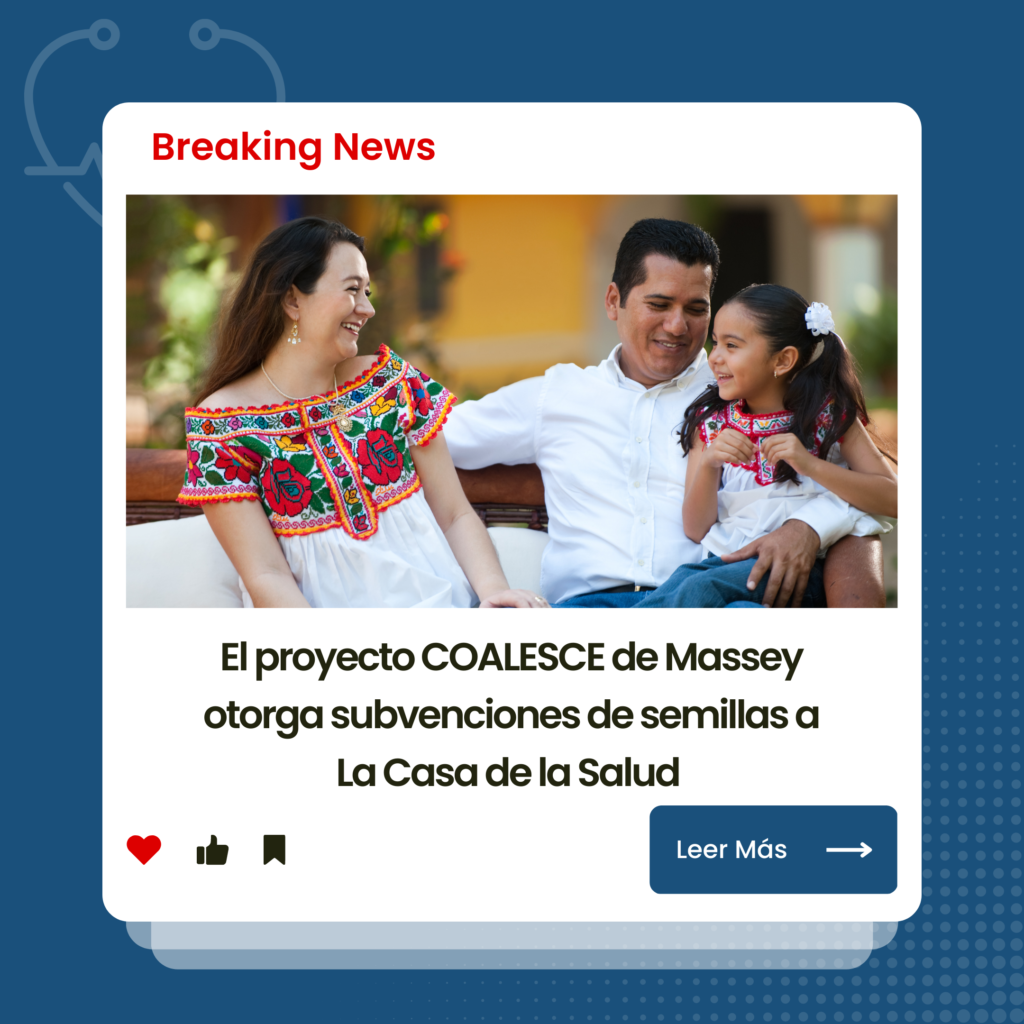Massey’s Project COALESCE awards seed grants to community organizations

VCU Massey Cancer Center is reinvesting in community organizations to reduce the colorectal (CRC) and cervical cancer burden in Virginia.
On March 3, Massey awarded $5,000 COALESCE project partner seed grants to Casa de la Salud and Capital Area Health Education Center (AHEC), which are both federally qualified health centers (FQHC). Casa de la Salud, which is located in Midlothian, Va., and the Richmond-based Capital AHEC were a part of Project COALESCE.
Launched in January 2021, Project COALESCE stands for Clinics & COmmunities TAckling RaciaL DisparitiEs, Systemic in Colon and Cervical Cancer ScrEening. Using $400,000 from Pfizer Global Medical Grants and with oversight by the American Cancer Society (ACS), Massey and select FQHCs created partnerships known as dyads in Richmond, Danville, Martinsville and Brunswick County. The goal was to increase CRC and cervical cancer screenings by 5-10% and improve diagnostic follow-up processes. The funding for Project COALESCE ended in December 2022.
“These $5,000 awards are part of Massey’s commitment to go beyond the grant,” said Robert A. Winn, M.D., director and Lipman Chair in Oncology at Massey. “The funding for the pilot program ended, but our work to strengthen relationships and to build trust is moving to the next level. By arming providers with resources they need to educate patients about screenings, Massey allows them to take the reins and make measurable gains on CRC and cervical cancer disparities.”
The American Association for Cancer Research (AACR) Cancer Disparities Progress Report 2022 found Black individuals have the highest CRC incidence and mortality rates of all racial and ethnic groups in the United States; they have a 20% higher likelihood of getting colorectal cancer and a 40% greater chance of dying from it. CRC is the second most common cancer and is the second leading cause of cancer death among Native Americans.
According to the ACS, Native Americans have the highest incidence of cervical cancer, followed by Hispanic and Black women. Black women are also more likely to die from it than any other racial or ethnic group.
“The systemic, race-related barriers that Casa de la Salud and Capital AHEC have already identified are critical to our mutual efforts to increase access to CRC and cervical cancer screenings,” said Katherine Tossas, Ph.D., M.S., director for catchment area data access and alignment and member of the Cancer Prevention and Control research program at Massey. “Together, we can chip away at the figurative walls standing between patients and the routine tests that can save lives.”
Tossas, who was the principal investigator, said screening results varied in each of the dyads during Project COALESCE, but all FQHCs made progress. In some instances, they also identified unexpected challenges.
For instance, a Project COALESCE partner contacted Massey in 2021 because patients were having a difficult time finding the FQHC on an unmarked Brunswick County road. Massey worked with the current U.S. Representative-elect Jennifer McClellan (D-4th) and the Virginia Department of Transportation to change state code to allow clinic signage on the side of the road; the cancer screening services provided at the FQHC now have more visibility.
In other communities, Project COALESCE helped to educate postal workers about fecal immunochemical tests (FIT) used for the detection of CRC, and regularly delivered to the community through the mail. A partner FQHC shared that some carriers had concerns about the hazardous waste labels on FIT, so they would not pick up the tests. Project COALESCE facilitated conversations about the importance and safety of FIT, and now the distribution is happening more frequently.
“With the COALESCE project partner seed grants, Casa de la Salud and Capital AHEC will ensure the advancement of efforts to eliminate CRC and cervical cancer inequities in the community,” said Tossas. “Too often, a grant ends and so do the programs. Massey is shifting that model. We aim to instill community priorities into Massey’s infrastructure instead of offering only an episodic interaction.”
The Request for Applications outlined criteria for the awardees, including the submission of a mid-term progress report at six months and a final evaluative report at the end of the 12-month program period that begins Apr. 1, 2023. Massey has also committed to assist the recipients with identifying and developing funding proposals to independently expand upon the work started with Project COALESCE.
In addition to the Casa de la Salud and Capital AHEC seed grants, Massey developed a separate, ongoing initiative with the Brunswick Health Ambassadors (BHA), another COALESCE project partner. Massey is sponsoring an updated health directory focused on Southside Virginia.
The publication is designed to improve and enhance access to health care for the underserved, underinsured and uninsured in Southside Virginia. The BHA, Massey and Capital AHEC will all work on the directory, with an AHEC scholar responsible for the routine updating of its resources.
Written by: Amy Lacey
